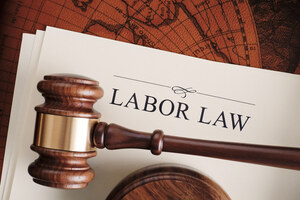 To date, the written record on this California labor lawsuit is somewhat sparse. However, Honorio provides a valuable opportunity to review some of the basics of California’s wage and hour protections. In addition, the lawsuit offers the chance to review what employees can and should do to protect these rights. Perhaps the most basic is the right to know about how the law protects working people. Knowledge is power.
To date, the written record on this California labor lawsuit is somewhat sparse. However, Honorio provides a valuable opportunity to review some of the basics of California’s wage and hour protections. In addition, the lawsuit offers the chance to review what employees can and should do to protect these rights. Perhaps the most basic is the right to know about how the law protects working people. Knowledge is power.
The right to know
In California, employees are protected by labor laws, regardless of birthplace or legal status. In general, these rights include:
- the right to be paid at least the minimum wage, which as of January 1, 2024 is $16.00 per hour. Some industries and some locations have a higher minimum. For hours worked over 40 in a workweek or 8 in a day, wage earners have the right to overtime pay at 1.5 times the normal rate;
- the right to a safe and healthy workplace;
- the right to medical care for injuries and illnesses related to work; and
- the right to take action without fear of firing or other forms of retaliation.
Waiting time, reporting time, and overtime
In addition to overtime, section 510 of the California labor code has been interpreted to require employers to pay for waiting and reporting time. Employers must pay employees:
- for all hours that they are required to wait on the employer's premises or at another designated place of work (when, for example, waiting to punch in or for a bag check); and
- for a minimum of two hours of work if they are required to report to work but are sent home early.
Meal and rest breaks
California labor law requires employers to provide hourly employees with uninterrupted meal and rest breaks. These breaks include:
- Meal breaks: hourly employees who work more than five hours in a workday must be provided with a 30-minute uninterrupted meal break. This break must be provided no later than the end of the employee's fifth hour of work. Employers must relieve employees of all duties during this break and allow them to leave the work premises. If employees are not relieved of all duties during the meal break, the time must be counted as hours worked and paid.
- Rest breaks: hourly employees must be provided with a 10-minute uninterrupted rest break for every four hours worked, or major fraction thereof, up to a maximum of four breaks per day. Rest breaks must be paid.
Reimbursement for business expenses
READ MORE CALIFORNIA LABOR LAW LEGAL NEWS
- Uniform expenses: If employees are required to wear uniforms, the employer must reimburse them for the cost of purchasing and maintaining the uniforms; and
- Other expenses: Employers may be required to reimburse employees for other reasonable business expenses, such as the cost of tools, supplies, and equipment.
- Travel expenses: If employees are required to travel for work, the employer must reimburse them for mileage, tolls, parking, and other transportation costs; and
- Cell phone expenses: If employees are required to use their personal cell phones for work, the employer may be required to reimburse them for a portion of their monthly bill.
How to protect your legal rights
Above all make sure that you are informed of your rights, by clicking on the links above. It is also important that you keep your own records of the time and days that you work and any work-related expenses you lay out. Keep these at home, not at work.
You may also contact the California Labor Enforcement Taskforce at 1-855-297-5322 or an attorney who specializes in this kind of work.
